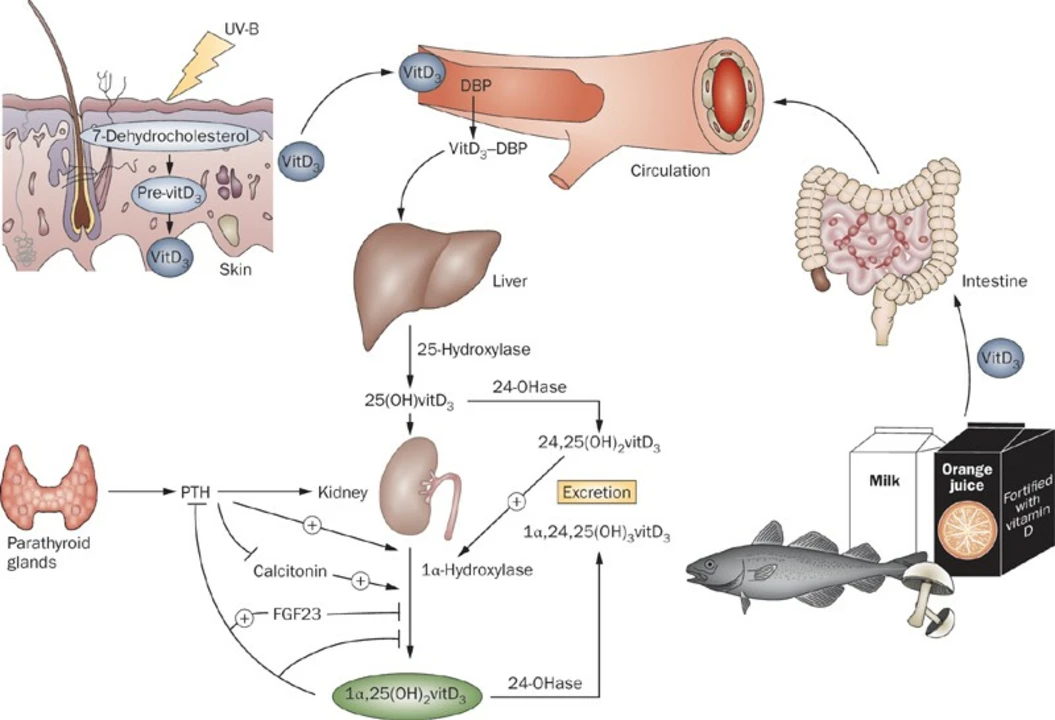Kidney Health: Simple Ways to Support Your Kidneys
Your kidneys do a lot behind the scenes – they filter waste, balance fluids, and keep blood pressure steady. When they’re healthy, you barely notice them. But if something goes wrong, fatigue, swelling, or changes in urine can show up fast. The good news is most kidney problems are preventable with everyday choices.
Everyday Habits for Healthy Kidneys
First off, drink enough water. Aim for about 8 cups a day unless your doctor says otherwise. Water helps flush out toxins and keeps the filtration process smooth. You don’t have to chug gallons; just sip consistently throughout the day.
Watch your salt intake. Too much sodium raises blood pressure, which puts extra strain on the kidneys. Swap salty snacks for fresh fruit, nuts, or unsalted veggies. If you cook at home, use herbs and lemon instead of table salt.
Control blood sugar if you have diabetes. High glucose can damage tiny kidney vessels over time. Eating balanced meals with lean protein, whole grains, and plenty of fiber helps keep both blood sugar and kidneys in check.
Avoid overusing painkillers like ibuprofen or naproxen. These NSAIDs can reduce blood flow to the kidneys, especially if taken often or in high doses. If you need regular pain relief, talk to a pharmacist about safer options – even the Ibuprofen article on our site explains when it’s okay and when to be cautious.
Limit alcohol and quit smoking. Both habits raise blood pressure and can lead to chronic kidney disease. Cutting back or quitting altogether gives your kidneys a chance to recover and stay functional longer.
When to Talk to a Doctor
If you notice swelling in your ankles, unexplained fatigue, or changes in how often you pee, it’s time to get checked. Simple blood tests (like creatinine and eGFR) can tell if the kidneys are filtering properly.
People on medications that affect kidney function – such as certain antibiotics, diuretics, or even some heart drugs like atenolol – should have their kidney numbers monitored regularly. The article about caffeine and atenolol highlights how everyday substances can interact with meds, so keep your doctor in the loop.
Family history matters too. If a close relative has chronic kidney disease, talk to your healthcare provider about early screening. Catching issues early makes treatment easier and often prevents permanent damage.
Finally, stay active. Regular exercise helps control weight, blood pressure, and insulin levels – all of which protect the kidneys. Even a brisk 30‑minute walk most days can make a big difference.
Keeping your kidneys happy doesn’t require drastic changes. Simple steps like staying hydrated, watching salt, limiting risky meds, and getting regular check‑ups go a long way. Start with one habit today, and you’ll feel the benefit in no time.

The Role of Calcitonin in Kidney Function and Health
As a copywriter, I've recently explored the role of calcitonin in kidney function and health. Calcitonin is a hormone that plays a crucial role in regulating calcium and phosphate levels in our body. It works closely with the kidneys to maintain a proper balance, ensuring that our bones stay strong and our blood stays healthy. Additionally, calcitonin helps to prevent kidney stone formation and protects against potential kidney damage. Overall, it's fascinating to learn about the importance of this hormone in maintaining our overall well-being.
April 27 2023